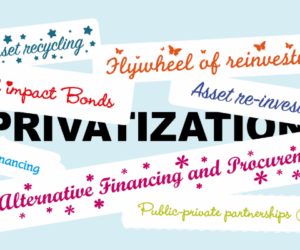
Ayodele Adio and Ekeoma P. Ohaegbulam remind us of…general, foundational principles, but argue convincingly that reputation management in Nigeria, Africa’s most dynamic society, has a certain nuance, what they call “the Nigerian nuance,” which are peculiarities that can be seen in prevailing, cultural norms – the Nigerian tendency to filter anything and everything through the prisms of religion and ethnicity, and the impactful, inescapable growth of social media.
The title of this review is taken from a familiar saying, namely that “reputation is everything”. Robert Greene in his book, The 48 Laws of Power adds that “so much depends on reputation, guard it with your life,” as explained in Law 5 of the 48 laws that he examines. Thus cloaked in an existential mode, it would appear that reputation is not just vital to existence, it is the very source of power, influence, character, and respect that must be carefully cultivated, nurtured and protected, for when it is lost, maligned or tarnished, much damage – sometimes irreparable – is done. To rebuild it and regain trust is a much more complex task thereafter. In a world of intense competition, rivalry, and struggle for market equity, intensified by the growing pressures of a digital age and viral communication systems, the need to manage public perception and protect brands has never been more urgent.
Reputation management is the convergence of a series of interrelated activities and processes: brand management, communications, writing, speaking, publicity, appearances, which require strategy, vigilance, skills and tools. As it is for individuals, so it is for organisations and businesses, wars have been fought on account of attempts to protect reputation or national pride, legal battles have been launched to protect the integrity of persons and brands.

Ayodele Adio and Ekeoma P. Ohaegbulam remind us of these general, foundational principles, but argue convincingly that reputation management in Nigeria, Africa’s most dynamic society, has a certain nuance, what they call “the Nigerian nuance,” which are peculiarities that can be seen in prevailing, cultural norms – the Nigerian tendency to filter anything and everything through the prisms of religion and ethnicity, and the impactful, inescapable growth of social media. This is not a theoretical book, it is a product of experience, careful observation and painstaking review of case studies from the Nigerian public square, with the emphasis on “public” justified by the extensive and comprehensive scope of the content. The authors’ approach is at once social and historical. In reviewing various cases of reputation management in Nigeria over two decades, they write social history, remind the practitioner of what has been, and the general reader of concrete examples that provide useful lessons in the management of crisis. The book is divided into three parts.
Part A, titled “Spotlighted Cases,” focuses on over 50 reputation management case studies drawn from virtually every segment of the Nigerian society, including politics, government, public institutions, sports, entertainment, religion, academia, technology and others. The examples are fresh, topical and instantly recognisable, especially for readers who are ardent followers of Nigerian public affairs. Each of the cases is reviewed using the same format: the background and context of the case, the issues involved, the reputation management action that was taken, which is followed by the authors’ own analysis. Some of the cases are as recent as Senator Natasha Akpoti’s “satirical apology” to Senate President Godswill Akpabio; the President’s apology for the honours’ list error (June 2025); and the COVID-19 Palliative Diversion Scandal (2020).
Also, the Federal Government’s apology after the ASUU strike (October 2022); the 2020 #EndSARS protests; CBN naira redesign (December 2022); Nkechi Blessing Sunday’s Instagram apology (October 2024); Halima Abubakar’s apology to Apostle Suleman (October 2024); Pastor Enoch Adeboye’s ‘Tithe Doctrine Retraction’ (October 2024); Erisco Foods vs. Customer Chioma Okoli (September 2023); Dangote Cement-Kogi State Shutdown Standoff (October 2022); FlutterWave’s CEO Agboola’s address of allegations (April 2022); Victor Osimhen’s outburst and aftermath (June 2024); The Chrisland Schools child-rape and death scandals (April 2022–March 2023), and so on.
Part B is instructively titled “Deep Dives”, an early signal that the writers seek to provide a more detailed analysis, and this is precisely what they do, using the same format. This is by far the most extensive part of the book, containing a total of nine chapters. Here, the narratives tell the story of Nigeria, highlighting the nuances of reputation management in the country.
In general, the authors stress transparency and accountability in managing reputation, the power of apology where necessary, when a press release could be either right, prompt or inadequate, and instances where defiance and assertiveness or silence served the purpose. The common thread is the need to be pro-active, and the most likely double-edged nature of certain responses. Notably, the authors refrain from being overly judgmental, perhaps out of the realisation that the reader may consider the same context and issues as defined and reach different conclusions.

Part B is instructively titled “Deep Dives”, an early signal that the writers seek to provide a more detailed analysis, and this is precisely what they do, using the same format. This is by far the most extensive part of the book, containing a total of nine chapters. Here, the narratives tell the story of Nigeria, highlighting the nuances of reputation management in the country. In Chapter 1: “Corporate and Financial Sector – Scandals, Regulation and Trust,” the emphasis is on the interface between businesses, government, and regulatory agencies in such case studies as “The Cadbury Nigeria Accounting Scandal” (2006), stressing the need for corporate governance; “The MTN Nigeria Regulatory Fine” (2015), which shows what can be achieved through negotiation; and “The Banking Sector: Consolidation and Collapse.”
The focus in Chapter 2 is “Politics and Grand Corruption” and how a rather clear case can be ethnicised and glossed over as in “The Stella Oduah. Armoured Car Scandal” (2013). There are many cases that the reader will find refreshing in this part of the book, be it on The #EndSARS protests (2020); Shem Obafiaye and “My Oga at the Top”; Funke Akindele’s “Lockdown Party” (2020); The “P-Square Saga”; “The COZA Allegations (2019): Busola Dakolo vs. Biodun Fatoyinbo”; “The Baba Ijebu Sexual Assault Case” (2021); “The Curious Case of Bobrisky: Building a Brand on Controversy.”
In Chapter Nine, the authors conclude by noting specific lessons that can be drawn from their narratives, namely “the primacy of the regulator in structured sectors, the unpredictable power of the digital pillory, the Nigerian nuance: the enduring influence of culture and religion; the accountability paradox: survival, resilience, and reinvention”, and the all-important values of transparency, foresight and authenticity as guide for the future.
As the authors themselves submit, there is no one size-fits-all as to how the business of reputation management can be conducted, since each case is determined by the prevailing context. This then is the more reason reputation managers need to see their assignment as a leadership function within an organisation: and so the questions invariably remain: Who is the reputation manager? What is his role within an organisation? How does he or she manage relationships?
In Part C, the book is brought to a close with the title, “Learning From Experience,” a practical toolkit for reputation management in Nigeria, which can be adapted to suit the specific needs of the reader or organisations. The toolkit is presented in phases, beginning with a detailed acknowledgement of the online space and social media, and a general media audit of influence, stakeholder perception and external communities. A step-by-step guideline for crisis management is further provided. I find particularly interesting what the writers call “Your Guide to Common Nigerian PR and Media Terms”, with their definition of such terms as “Aso Rock, Brown Envelope, Connection, Gbas Gbos, Item 7, Oga at the top, Press Parley, Vawulence, Wetin Dey Happen? and WhatsApp Universit.y” Whereas the main focus in the book generally is the Nigerian ecosystem, this glossary of terms should prove useful to readers, Nigerians and non-Nigerians alike, who may not be familiar with these expressions.
This is a very useful book which will prove to be of value to both reputation managers within the Nigerian public square, as well as the general reader. While the practical guidelines are useful for the benefit of the practitioner, it seems to me that the book could have been further enriched, under “learning from experience”, with a discussion of the responsibilities of the reputation manager, the skills that he or she needs to cultivate and how to navigate in practical terms within the complex Nigerian space.
As the authors themselves submit, there is no one size-fits-all as to how the business of reputation management can be conducted, since each case is determined by the prevailing context. This then is the more reason reputation managers need to see their assignment as a leadership function within an organisation: and so the questions invariably remain: Who is the reputation manager? What is his role within an organisation? How does he or she manage relationships? What are the pitfalls to watch out for when the dirt hits the fan? What are the possible strategies under what circumstances?
Nonetheless, this may amount to stretching the authors beyond their premises. They are very clear in the introductory pages about what they intend to explore and, as they put it (and what we’re not). I have no iota of doubt that they have succeeded immensely in achieving their stated objectives. This is a relatable and engaging book that should be read by all and sundry.
Reuben Abati, a former presidential spokesperson, writes from Lagos.










